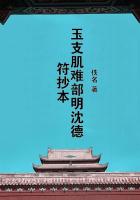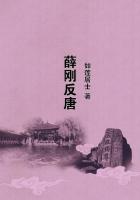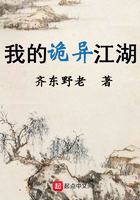And then on a Monday evening two or three weeks after the writing of the note, John Hardy came for her. Louise had so entirely given up thethought of his coming that for a long time she did not hear the call that came up from the orchard. On the Friday evening before, as she was being driven back to the farm for the week-end by one of the hired men, she had on an impulse done a thing that had startled her, and as John Hardy stood in the darkness below and called her name softly and insis- tently, she walked about in her room and wondered what new impulse had led her to commit so ridicu- lous an act.
The farm hand, a young fellow with black curly hair, had come for her somewhat late on that Friday evening and they drove home in the darkness. Lou- ise, whose mind was filled with thoughts of John Hardy, tried to make talk but the country boy was embarrassed and would say nothing. Her mind began to review the loneliness of her childhood and she remembered with a pang the sharp new loneli- ness that had just come to her. "I hate everyone," she cried suddenly, and then broke forth into a ti- rade that frightened her escort. "I hate father and the old man Hardy, too," she declared vehemently. "I get my lessons there in the school in town but I hate that also."Louise frightened the farm hand still more by turning and putting her cheek down upon his shoul- der. Vaguely she hoped that he like that young man who had stood in the darkness with Mary would put his arms about her and kiss her, but the country boy was only alarmed. He struck the horse with the whip and began to whistle. "The road is rough, eh?" he said loudly. Louise was so angry that reaching up she snatched his hat from his head and threw it into the road. When he jumped out of the buggy and went to get it, she drove off and left him to walk the rest of the way back to the farm.
Louise Bentley took John Hardy to be her lover. That was not what she wanted but it was so the young man had interpreted her approach to him, and so anxious was she to achieve something else that she made no resistance. When after a few months they were both afraid that she was about to become a mother, they went one evening to the county seat and were married. For a few months they lived in the Hardy house and then took a house of their own. All during the first year Louise tried to make her husband understand the vague and in- tangible hunger that had led tothe writing of the note and that was still unsatisfied. Again and again she crept into his arms and tried to talk of it, but always without success. Filled with his own notions of love between men and women, he did not listen but began to kiss her upon the lips. That confused her so that in the end she did not want to be kissed. She did not know what she wanted.
When the alarm that had tricked them into mar- riage proved to be groundless, she was angry and said bitter, hurtful things. Later when her son David was born, she could not nurse him and did not know whether she wanted him or not. Sometimes she stayed in the room with him all day, walking about and occasionally creeping close to touch him tenderly with her hands, and then other days came when she did not want to see or be near the tiny bit of humanity that had come into the house. When John Hardy reproached her for her cruelty, she laughed. "It is a man child and will get what it wants anyway," she said sharply. "Had it been a woman child there is nothing in the world I would not have done for it."IV
Terror
WHEN DAVID HARDY was a tall boy of fifteen, he, like his mother, had an adventure that changed the whole current of his life and sent him out of his quiet corner into the world. The shell of the circum- stances of his life was broken and he was compelled to start forth. He left Winesburg and no one there ever saw him again. After his disappearance, his mother and grandfather both died and his father be- came very rich. He spent much money in trying to locate his son, but that is no part of this story.
It was in the late fall of an unusual year on the Bentley farms. Everywhere the crops had been heavy. That spring, Jesse had bought part of a long strip of black swamp land that lay in the valley of Wine Creek. He got the land at a low price but had spent a large sum of money to improve it. Great ditches had to be dug and thousands of tile laid. Neighboring farmers shook their heads over the ex- pense. Some of them laughed and hoped that Jesse would lose heavily by the venture, but the old man went silently on with the work and said nothing.
When the land was drained he planted it to cab- bages and onions, and again the neighbors laughed. The crop was, however, enormous and brought high prices. In the one year Jesse made enough money to pay for all the cost of preparing the land and had a surplus that enabled him to buy two more farms. He was exultant and could not conceal his delight. For the first time in all the history of his ownership of the farms, he went among his men with a smiling face.
Jesse bought a great many new machines for cut- ting down the cost of labor and all of the remaining acres in the strip of black fertile swamp land. One day he went into Winesburg and bought a bicycle and a new suit of clothes for David and he gave his two sisters money with which to go to a religious convention at Cleveland, Ohio.















